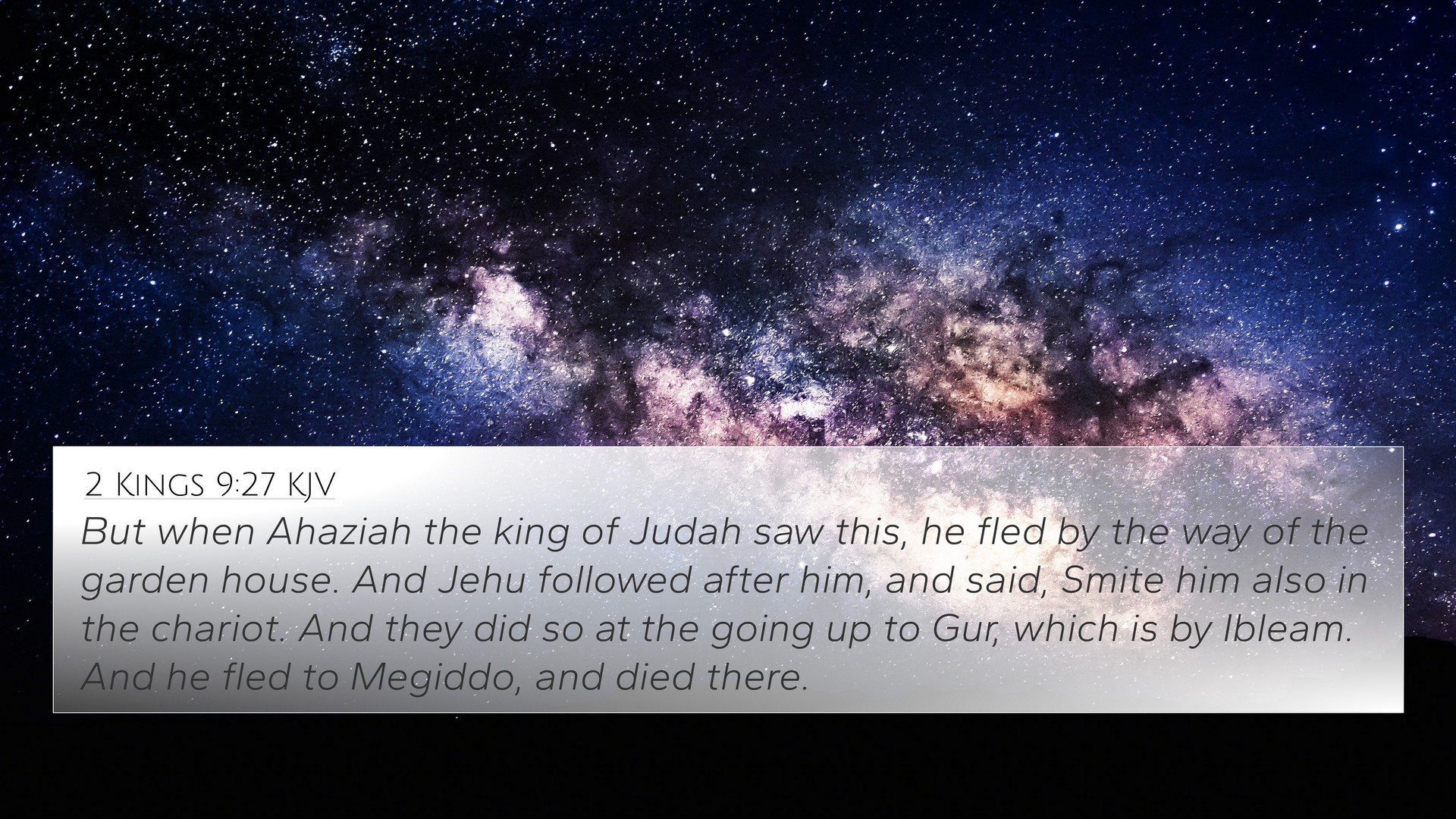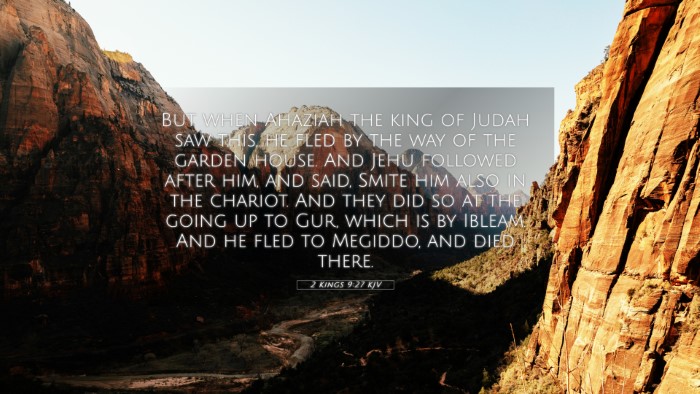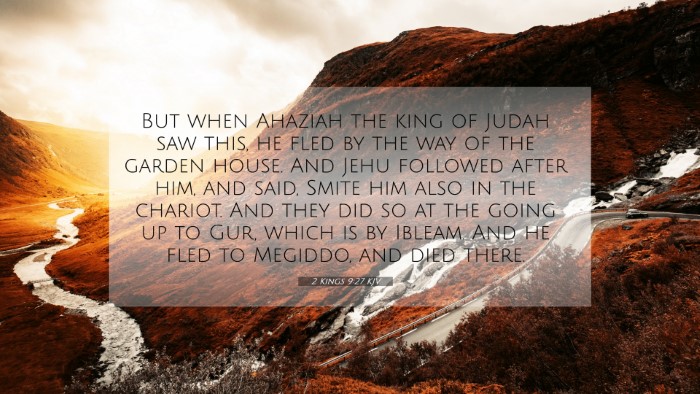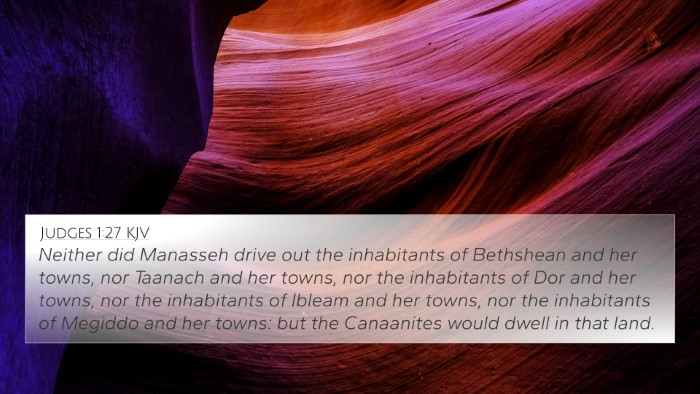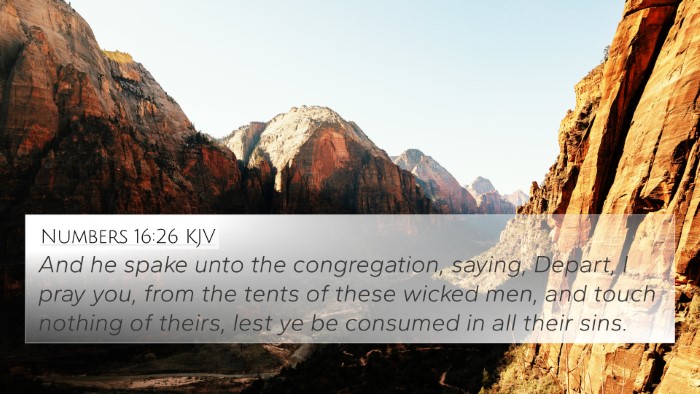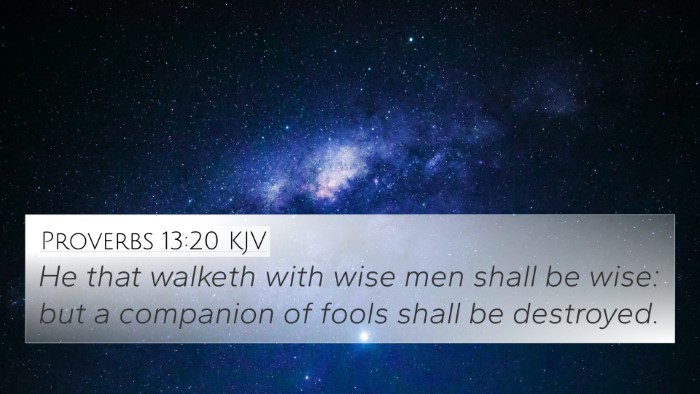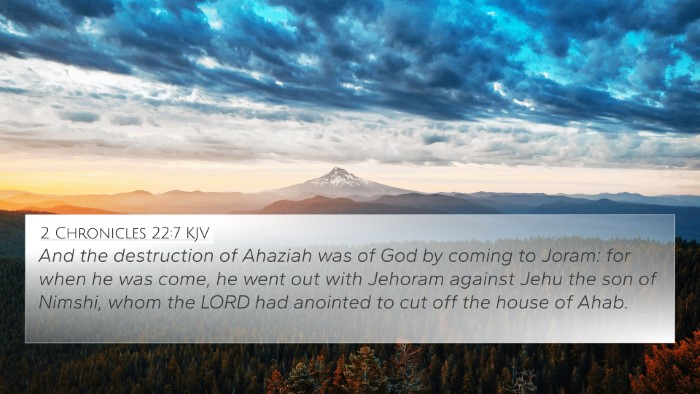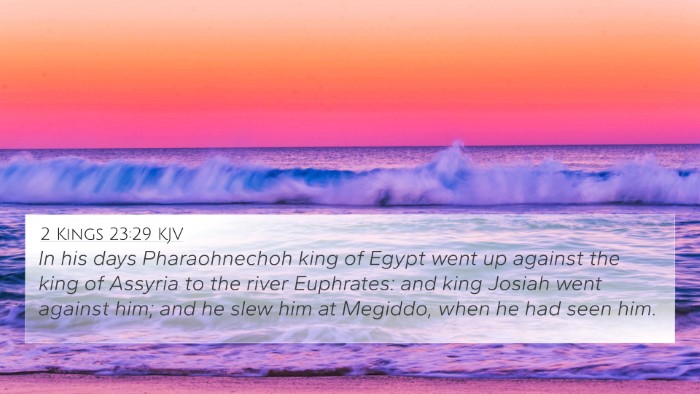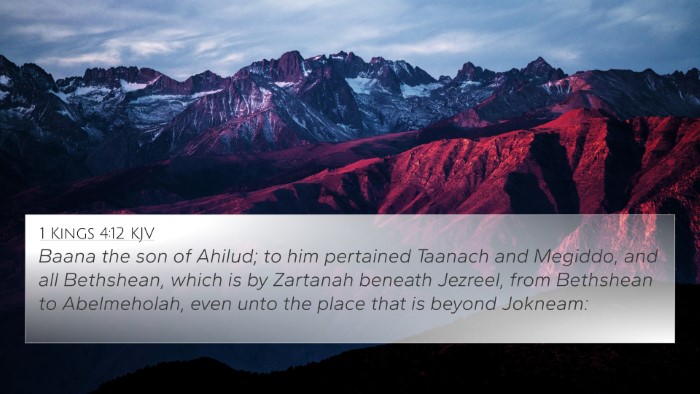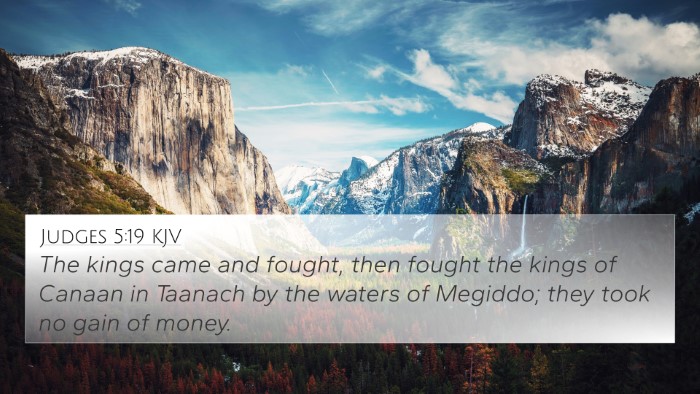Understanding 2 Kings 9:27
Verse: "But when Ahaziah the king of Judah saw this, he fled by the way of the garden house. And Jehu followed after him, and said, Smite him also in the chariot. And they did so at the going up to Gur, which is by Ibleam. And he fled to Megiddo, and died there." (2 Kings 9:27, KJV)
Context and Summary
In this passage, we witness a pivotal moment during Jehu's rise to power as he executes judgment upon the house of Ahab. Ahaziah, the king of Judah, attempts to escape Jehu’s wrath but is ultimately caught in the conflict between the divine judgment against Ahab’s lineage and his own desperate attempts to flee. The events depicted here serve to fulfill Elijah's prophecy regarding the downfall of Ahab’s house.
Key Themes and Insights
- Divine Judgment: This verse illustrates God’s sovereignty and His judgment against evil rulers, particularly through the means of Jehu, whom God had anointed to cleanse Israel from Baal worship.
- Consequences of Sin: The demise of Ahaziah signifies the tragic consequences that befall kings who deviate from God's commands and perpetuate idolatry.
- God's Faithfulness to Prophecies: Jehu’s actions fulfill the prophetic words spoken by Elijah in 1 Kings 21:21-22, confirming God’s faithfulness to His word.
- Flight as a Symbol: Ahaziah's fleeing can symbolize the natural human instinct to escape judgment, which fails when faced with divine purpose.
Bible Cross-References
This verse connects with several other scriptures that provide additional insight into its meaning:
- 1 Kings 21:21-22 - Elijah’s prophecy against Ahab's house.
- 2 Kings 10:7 - Jehu's completion of God's command against the house of Ahab.
- 1 Kings 19:16 - The anointing of Jehu as king of Israel.
- 2 Chronicles 22:9 - Ahaziah’s actions and fate after Jehu's rise.
- 2 Kings 9:30-33 - The dramatic encounter between Jehu and Jezebel, reflecting the ongoing theme of judgment.
- Proverbs 1:27 - The inevitable consequences of rejecting wisdom.
- Isaiah 10:1-3 - The impending doom of unjust leaders echoing God's judgment.
Comparative Analysis
The execution of judgment seen in 2 Kings 9:27 parallels themes found in both the Old Testament and New Testament, revealing a consistent biblical truth regarding rebellion against God and the consequences that follow. The profiles of kings like Ahaziah throughout the scriptures embody the struggle between faithfulness to God's covenant versus adulation of false gods.
Tools for Bible Cross-Referencing
When studying scripture, certain tools can enhance understanding:
- Bible Concordance: A critical tool for finding specific verses and their themes, aiding in cross-referencing.
- Bible Cross-Reference Guide: Helps to explore the connections and themes woven throughout different books of the Bible.
- Bible Chain References: A method to connect verses based on thematic continuity across the scriptures.
Interpreting Biblical Themes Through Cross-References
To deepen understanding and find parallels, it’s beneficial to analyze the overarching narratives within the Bible. This involves noting how different biblical authors address themes of judgment, sin, and redemption, and how they relate to each other through various contexts.
Conclusion
In conclusion, 2 Kings 9:27 serves not just as a historical recounting of judgment involving Ahaziah, but as a rich intersection of theological principles regarding God’s sovereignty and the consequences of sin. As we explore Bible verses that relate to each other through cross-referencing, we begin to see the intricate tapestry of God's redemptive story and the stark warnings against turning away from Him.
